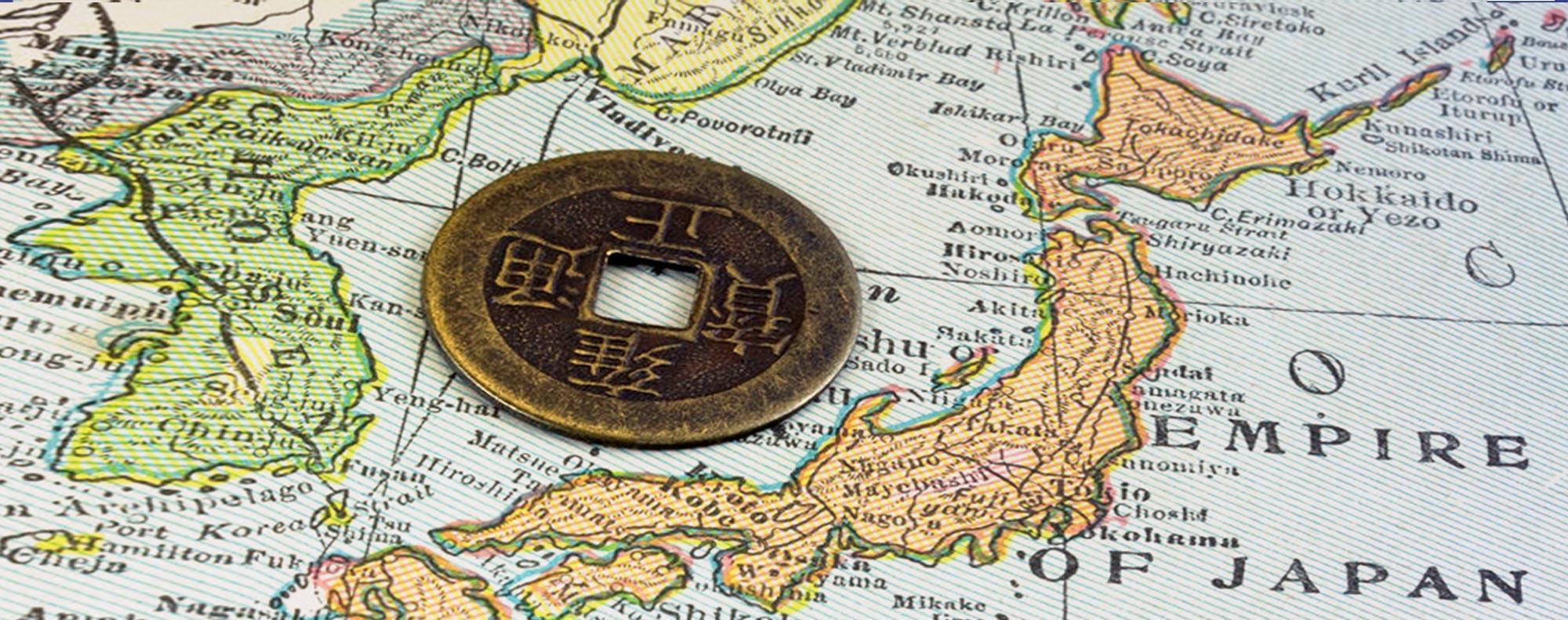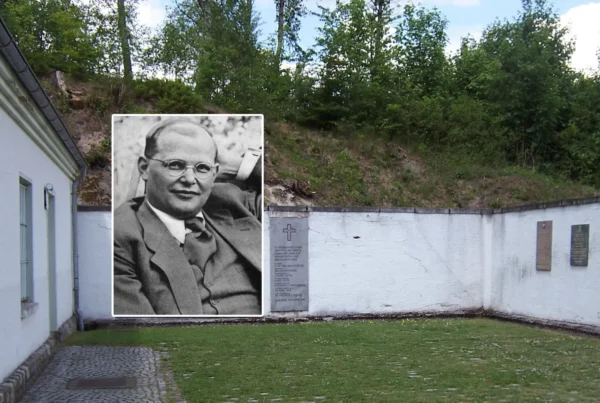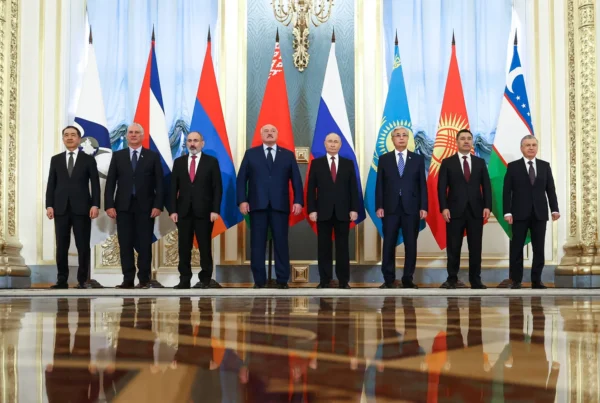Following Japan’s surrender in WWII, no peace treaty was ever concluded between Moscow and Tokyo. The unresolved territorial dispute over the southern part of the Kuril Islands remains the main obstacle to this. While Japan considers the islands its “northern territories”, Russia does not recognize the existence of the dispute. With Russia waging a war in Europe, this might be a perfect opportunity for Japan to change the global perception of its claims to the Kuril Islands.
Murat Gibadyukov, 14 March 2022
The southern part of the Kuril Islands has been in the center of a dispute between Japan and Russia for almost eighty years. According to Japan’s Prime Minister Fumio Kishida, Japan will continue to maintain a strong position on this issue. In a parliamentary debate on 3 March 2022, Mr. Kishida voiced his opinion on an almost eight-decade-long conflict and reassured his people that he has no intention to give up these lands, stating: “Japan’s approach is that we consider the southern Kuril Islands to be our ancestral lands that are covered by our country’s sovereignty.”
This statement comes a week after the Japan Foreign Ministry Department Director, Hideki Uyama, spoke out about the conflict. Mr. Uyama stated, “The northern territories are occupied, and we believe that this contradicts international law, as does the ongoing Russian army attack on Ukraine.” Interestingly enough, this is the first time that the term “occupied” has been used by Japan. To Russia, this signalled a transformation in the rhetoric of Japan’s foreign policy.
In response, Russian Foreign Ministry spokeswoman Maria Zakharova said that Japan’s Foreign Ministry’s parallels between the military operation in Ukraine and the incorporation of the southern Kurils into Russia have revanchist overtones and accused Japan of distorting history. She stated, “We see in this evidence that certain forces in the Japanese political establishment keep in mind the possibility of implementing their territorial claims to Russia… We recommend that you forget about it forever.”
The Southern Kuril Islands conflict represents a territorial border dispute between Japan and Russia which arose because the islands were included in the USSR in 1945 as a result of the Yalta Agreement after World War II. After almost 80 years, the parties have yet to conclude a peace agreement. The main obstacle to the conclusion of a peace treaty is the disagreement over rights to the southern part of the Kuril Ridge. After WWII, the entire archipelago was incorporated into the Soviet Union, but Japan disputed ownership of the Iturup, Kunashir, Shikotan and Habomai islands, which were part of the Japanese prefecture of Hokkaido, the northernmost of Japan’s main islands, before WWII. Shuichi Tokuda, Deputy Head of the European Affairs Bureau of the Japan Foreign Ministry, stated that: “The Japanese government is committed to signing a peace treaty, but in order to do so, the issues related to the ‘northern territories’ must first be resolved.”
At the same time, the Russian Foreign Ministry has repeatedly stressed that Russian sovereignty over these territories, based on a valid international legal foundation, is beyond doubt.
Unlike Russia, where the topic of the Kuril Islands rarely appears on national news, the fate of the disputed territories is a hot topic in Japan and one that is extremely painful. The passion surrounding the return of the islands to Japan is fuelled not only by the political interests and nationalistic sentiments of Japan’s elites. The fact that there are graves of Japanese people who lived there before the country’s defeat in World War II also plays a role, and that is very important to the Japanese society, where the culture of ancestral preservation and memory is strong. Japan has even established a mourning Day of the Northern Territories celebrated on 7 February, and Japanese maps already list the coveted lands as Japanese territory.
Since the beginning of the territorial dispute, Japan has made many attempts to return the Kuril Islands to its territory to bring the Kuril Islands under its sovereignty. In 1956, the USSR and Japan signed a Joint Declaration in which Moscow agreed to consider the possibility of ceding Habomai and Shikotan (7% area of all four islands) to Japan after the signing of a peace treaty, while the fate of Kunashir and Iturup was not addressed. The USSR expected the Joint Declaration would put an end to the dispute, while Japan considered the document only as part of the solution to the problem without giving up its claims to all of the islands. In 2018 in Singapore, following a summit meeting between Russian President Vladimir Putin and Japanese Prime Minister Shinzo Abe, the latter said that the parties agreed to accelerate the negotiation process for a peace treaty based on the 1956 Soviet-Japanese Joint Declaration. This was a serious concession on Japan’s part, since until then its official position was to demand the return of the four islands and only after the conclusion of a peace treaty.
Recently, Japan has proposed new methods for the return of the Kuril Islands. To resolve the issue of ownership of the Kuril Islands, Japan must show its “readiness and ability” to block the straits between mainland Russia and the four islands, which are the main supply routes. Akio Kawatao, a Japanese political scientist and former diplomat, made such a point in his article in Newsweek Japan in 2021. He suggested that Tokyo should not rush to resolve the territorial issue now: “We should wait for Russia’s national strength to “decline like it did in the 1990s.” However, according to Kawatao, for now Tokyo must act to destroy the main tenet of the Russian argument and prove to the world that the Yalta Agreement itself does not define the shift of borders between Russia and Japan. This was a year before the war between Russia and Ukraine began in February 2022.
Perhaps today’s turbulent Russian and European security climate presents an opportunity for the settlement of the Kuril Islands dispute in Japan’s favour. On the Day of the Northern Territories 2022, the USA has, unsurprisingly, expressed its support to Japan on the Kuril Islands issue and recognized Japan’s sovereignty over them. Russia’s waging a globally condemned war for the independence of the self-proclaimed territories in Ukraine and for a neutral Ukraine, which has led to an unprecedented level of sanctions and isolation of contemporary Russia. As a result, Japan just might have another opportunity to change the global perception of its claims to the Kuril Islands, and to say “No” to the Yalta Agreement.






